- Home
- Fern Michaels
Holiday Magic Page 15
Holiday Magic Read online
Page 15
No, it couldn’t be perfect. Life made sure of that.
I ate Mrs. Claus’s head, then took in Logan’s huge shoulders, that steady gaze, the unyielding strength, the funny flower. No, marriage wasn’t perfect, but with Logan, well, it could reach toward perfection.
The skinny blonde bomb he would marry would be very lucky. He would probably be very unhappy with me when I kickboxed her.
I ate Mrs. Claus’s feet. Then I ate her bottom.
Chapter 6
Late at night, after I made myself a cup of peppermint tea, I wandered into the parlor and stared up at the music Christmas tree. In the corner, behind the piano, I noticed that the wallpaper was coming up. I put my cup of tea on an antique table, bent down, and studied it.
It wasn’t only one layer of wallpaper. As I peeled one carefully away from the other, I counted six layers. Flowered, striped, paisley, it was all there. Each wallpaper was different, each picked by a different woman, in a different time. What was going on in their lives at that time? Were they excited to be redecorating a room? Had they moved into this house willingly? Was one a war bride? Was another married off young and regretting it? Was one of the women passionately in love with her husband or did she fall in love with someone else? What hardships did they endure? Did they have children? Did they ever go broke? Were they happy with the way their lives turned out? What would they have changed?
All these thoughts, from wallpaper. I did not need the walls to talk; I needed the wallpaper to talk.
I heard the swishing of long skirts in the kitchen and walked back in with my tea cup. Nope. No one there. I laughed to myself and went to bed, but not before I called out, “You sure picked out nice wallpaper.”
“The worst part is that no one will sit with me at lunch. No one.”
I thought my body would split from pain, as I covered Jacob’s small hands with mine across the kitchen table. Not even the Wowza Walnut Caramel Tarts I’d made for him were going to sweeten over this problem.
“Yeah, I’m having fun, too,” Sarah said. “A bunch of girls at school, you know the popular ones”—she drew quotes in the air with her fingers—“they’ve told everyone that I’m a modern day Lolita, as if I’m after all their fathers or something. Why do they hate me?”
“I try to go slow to the cafeteria,” Jacob said, “so most of the kids are almost done eating when I get there, and then I find a table with a few kids at it but I don’t sit close to them in case they tell me to go away geek-head, but I sit sort of close so not everyone in the whole cafeteria knows I don’t have any friends.”
“I’m past even that,” Sarah said, defiantly, but I saw the tears in her eyes. “Every time I walk past one of the ‘popular girls,’ they call me names, or run their shoulders into mine, or stop everything they’re doing and glare at me.”
I tried not to cry. Kids are so awful to each other sometimes.
“I sit in my classes and do the work and try to look busy at my desk when the teachers let kids talk,” Jacob said. “Everybody talks to each other, but not to me. It’s like I’m invisible. They treat me like I’ve got leprosy or something.”
Later, after the three of us had pounded out our anger in a mad game of Scrabble, I gripped the sides of the counter and cried my eyes out.
How many other mothers who had lived here before me spent time crying in this kitchen for the kids they loved dearly whom they could not protect from the outside world?
All of them, I thought. All of them.
Our concert rehearsals were in the exact place where we would have the concerts, and because we had so, so little time, they were long rehearsals.
The first night I took the first set of acts and worked with those specific groups, including a huge chorus, which I’d cobbled together from various churches and schools, all ages.
The next night, I worked with the second set. The third night, we were altogether.
It was a disorganized, noisy, calamitous disaster.
“Well, Aunt Meredith, you and me are going to have the same problem when this is all over,” Jacob told me, patting my arm. “No one’s going to want to sit with you at lunch either.”
“Yeah,” Sarah said, cracking her gum. “You’re definitely not going to be in the popular group. But hey, no one in our family is in the popular group.”
I rolled my eyes, yanked up Sarah’s too-low-cut shirt, then hugged my kids, before they scooted off.
Martha waved and made a beeline for me. She had agreed to handle the décor of the Community Center. The woman could take twine, duct tape, and tree branches and make something museum-worthy.
“Okay, Meredith,” Martha said, consulting her clipboard. “We’ll have a cross, natural-looking, tall, in the middle of the stage. We’ll use white boxes, white gauze, white material, and cotton to form snow, sparkling white lights, shiny giant ornaments hanging from the ceiling, and tons of Christmas trees…. Oh, look who’s here! Thanks for coming, Logan.”
I whipped around and there he was.
The man who never left my mind, who made me tingle and tripped me up and left me hot and bothered.
“Meredith, Logan can do anything with a hammer and saw.” She blushed. “You know what I mean. I talked to him at your place, and he’s going to help with the set construction. You simply have to tell him what you’re thinking about. He can do it with a saw! And he has a big drill!” She blushed further. “You know what I mean.”
He was so hot. “Hello, hot—” I stopped myself, cleared my throat. “Hello, Logan.”
He was wearing a black jacket, jeans, cowboy boots. He grinned at me.
I blushed.
He winked.
I blushed further.
I used to be tough! I didn’t blush. What was happening to me?
He held out his hand to mine, to shake, as if we were meeting. I put my hand in his and hoped that he did not notice the tremble in it. See? This is what that man does to me.
He held on tight to my hand. It trembled. He winked again.
He knew it. By darn, he knew it.
I was so embarrassed I wanted to go out and ride a horse at full gallop.
To Oregon.
“So why are you here, Logan? In Telena? What brought you home?” I tried to scoot away from him. Everyone else had left the rehearsal, and he and I were sitting at a table. He wanted to discuss the details of the stage, although I had the sneaking suspicion he knew exactly what he wanted to do. I assumed he would sit across from me.
Nope. The cowboy with the shoulders a thousand angels could dance on sat right next to me. I scooted again. I could smell him. He smelled like Montana wind, mint, pine trees, and serene fly fishing rivers.
“I’m here because of Christmas.”
“Christmas?”
“Yes.” He drummed his fingers on the table. “I was in a meeting, in Los Angeles, about this time last year. We were acquiring another business. It was an engineering firm, and they would complement the construction part of my business in California. Anyhow, the meeting was long, started to get heated, and I was wiped out. I’d been traveling almost constantly for years, I had boxes stacked in my home, which I was rarely in, I hadn’t had a vacation in as long as I could remember, and I slept about six hours a night.
“I remember looking around the room at all these high powered, Type A people, whom I’d hired. They were all like me. Driven, relentless, ambitious. Anyhow, it was 8:00 at night, and I broke the meeting up, and everyone went home. I drove to the beach and walked out on the pier. I remember thinking how beautiful the ocean was, which got me thinking about water, fishing, then Montana.”
“And?”
He didn’t say anything for a while, brushed a hand through that thick hair, then focused those bright eyes on me. “And I realized that I had achieved what I needed to achieve.”
“Which was?”
“Financial stability.”
I nodded. I wanted financial stability myself. Dumping all the money I’d earned
in New York into one business scared me to death.
“And I was ready to go home. You know I grew up poor, Meredith, and being poor, that feeling of desperation, of inadequacy, the fear and struggle, it never leaves you. Never. My mother worked all the time because my father, who was no man in any sense of the word, decided it would be better if he ran off and saw the world than stay home and take care of his wife and son. She worked for the mining companies in the office, then three nights a week as a waitress.
“I ran a paper route starting when I was nine, mowed lawns in the summer, and worked in the mines before I left for college. In the summers, I’d go back again and work in the mines. It was dangerous, hard work. I watched my mother struggle and decided at a very young age that I would never sit at the kitchen table counting out quarters for food, and crying when the car broke down, and worrying about how to pay a medical bill, and I haven’t.
“Financially we were always right on the brink of going over a cliff. Once we went over the cliff when my mother got pneumonia, couldn’t work, and we lost the house. I knew I didn’t want to live like that. I had to make money. No other way around it.” He rolled those huge shoulders. “A lot of people who have successful companies, who chase after money, had the same sort of childhood that I had. We can’t, under any circumstances, go back to where we were. So we scramble to create what we didn’t have, and desperately needed, and can’t relax until we have it.”
I nodded.
“But the price I have paid for that financial security is that I had no personal life to speak of. All I did was work. And yet, always, I have wanted my own family. My mother passed away when I was twenty-five. She was an only child, so there was no one else. After that night in Los Angeles, I thought about things for about six months, and every day I was more sure that I wanted to move back to Montana and find a life. I’m still going to work, but I’ve promoted people, restructured some, and will delegate more.”
“How’s the move gone?” I asked.
He leaned in, our shoulders together, and smiled that easy smile. “Better than I could have possibly imagined.”
“But do you miss the excitement of your business, the deal making, the people?”
He shook his head. “I miss some of the people I work with who have been with me for years. We still talk, e-mail. They’re threatening to come to Montana and move into my house and fish all day, but I’ve told them they can’t because I need someone running the company. But the other parts of building a business? The travel, the intensity, the politics, working with people’s difficult personalities, no, I don’t. In fact, the longer I’m here, the more alive I feel. It’s almost like I’ve been half dead these last years, buried under a crush of work.”
“So you’re here to stay.”
He grinned at me. “Yes, Meredith, I’m here to stay. Coming back was the best thing I’ve ever done.” His eyes swept my face, my top half, in a flirty, warm sort of way that brought every nerve end to screaming awareness. “I needed to meet someone with a white streak in her hair.”
That night I dreamed of the accident.
In my dream I could see his eyes, but it was dark, and I had black in my head. I heard his voice, dimly, and watched him work on my body as if I was floating above it. I heard him yelling at me, and then, in my dream, I started to die.
I woke up with a start, sitting straight up in bed, breathing heavily.
The motorcyclist, I was told later, did CPR on me. Another motorist, a friend of my parents’, rushed for a phone and called for an ambulance, which arrived within minutes, my parents following the ambulance. By then, the motorcyclist had stabilized me, and I was breathing again, though unconscious.
My parents told me later that they had thanked him, but were so panicked, so hysterical at seeing their daughter on the pavement awash in blood, they never asked his name.
“It is to my everlasting shame that I did not get that young man’s name,” my father had bemoaned.
“We searched the police reports, but they didn’t have it, either,” my mother had said. “He was your angel, Meredith. Your angel. At least you know you have one.” My father had kissed me, then my mother. “We love you so much, Meredith. How about some tea and scones. You love scones.”
“What she needs is some of my calzone!” my father had announced. “We’re all lovers of my calzone!”
Now I stared out into the darkness toward the cathedral. The priests had put up the lighted deer all across the lawn and a huge cross was lit in the center to celebrate the miracle of Christ’s birth.
I took a deep breath. I needed a miracle of my own this Christmas.
Chapter 7
I continued to find acts for the concert.
Maly, a Cambodian chef in town, built a magnificent gingerbread house every year for Christmas, which she displayed in the storefront window of her restaurant. She agreed to decorate one house a night, on stage, while the choir sang. We’d have a camera on her and project the images to a huge screen as she iced and decorated it, turning the gingerbread into a magical, fantastical, tasty Santa’s house.
“Me you want at your Christmas show?” Maly asked, as we drank tea in her restaurant.
“I sure as heck do, Maly.”
“I honored.”
“We’re honored.”
We made chit chat for a while about the holidays, presents, et cetera, and then she said, her voice catching, “Meredith, my family, we come here in boats from Cambodia. First we stay in camp for one year. Hardly no food. My husband die, he sick. I put my three little sons in boat with me. First one sank. We rescued, back to camp. Second time, we in boat, we pay pirates no hurt us, boat no sink, and we come here. No war. No camp. No bombs. No scary police.” She shook her head. I did not miss the tears. “We work hard. We have restaurant. Sons go to college, all doctors. Help others. Now we ask to make Christmas house in Christmas show in Montana. Funny, life. And sad, too. That life, right? Funny, sad, happy. Yes, I happy to make Christmas house. Meredith, I thank you.”
“Thank you, Maly. Can’t wait to see it.”
“Ya, me too.”
We held hands between our tea cups.
I found another act in my dining room when I sat down with Norm and Howard the next morning after everyone else was gone.
“I accidentally shot at my brother in World War II,” Norm mused.
“You did?” I asked.
They both nodded.
“I spent one Christmas as a prisoner of war after the Battle of the Bulge, Meredith,” Howard said. “All of us were packed in a cattle car, no windows, headed for a camp. We heard the engine of a plane, and then we were shelled. We all got down on the floor as the train kept moving.”
“Later Howard and I compared dates and locations,” Norm said. “I was a fighter pilot, and it was me who hit his cattle car. Of course I had no idea there were people in it, much less American POWs, or the order wouldn’t have been made.” Norm’s face grew grave. “We were trying to disrupt the train lines.”
“I became a guest of the Germans,” Howard said. “It wasn’t pleasant. See this scar? And this one? I got all of those, plus a bunch more on this old body, in the POW camp. By the time the Americans rescued me I was under a hundred pounds and ill. But I remember Christmas there.” He smiled, though the smile was tinged with sadness.
“We sang Christmas carols. Some soldiers hummed, they were too hurt, too weak to sing. Other guys didn’t sing at all; maybe they didn’t want to remember where they weren’t. A couple sang as loud as can be. Old Petey, a kid from Arkansas, he sang the loudest. He was nineteen, told me later that he sang loud so he could hear his uncle’s voice in his own. The other loud singer was Dirk from Texas. He said he sang because he believed in hope, and Christmas is full of hope. A third guy, Paul, from Georgia, said he sang for Jesus and he sang because he was grateful. I said, ‘Why are you grateful? Look where we are. No food. No clean water. We’re prisoners.’ He said, ‘I sing because I’m still alive, t
hank you Jesus, that’s why, and I’m proud of us. I’m proud of the American soldiers.’ Then he hit me on the shoulder and said, ‘Howard, I’m glad you’re alive too, even though you snore like a cave man.’ Me and Paul, Norm here, we’re all still friends. We see him once a year. And every year he tells me, ‘I’m grateful to be alive, and even more grateful you two are alive, thank you Jesus and Merry Christmas.’ You get what I’m saying, Meredith?”
“I do, Norm, I do. And you and your brother are going to retell that story at the Christmas concert.” I wiped the tears off my face.
“We are?”
“Yep. To ‘Silent Night.’ No arguing.” I handed them a plate of pink divinity cookies.
Howard took five and winked at me. “When you’re this old you stop worrying about what to eat and what not to eat.”
Norm took six. “Delicious, Merry Meredith. My life got so much better after you moved back to Telena.”
Hannah found me one more act, and that was a wrap. “Do you still need more people for the concert?”
“I do, if you have someone good.”
“Ask Simon.”
“Simon?” Simon, the nervous one, the one with trembling hands, five apple slices, and lots of obsessions?
“Yes, Simon. When he moved here I introduced myself to him. His name rang a bell so I looked him up on the Internet.” Hannah looked pretty pleased with herself. “Math and music go hand in hand. Very similar.”
“So who is he?”
Hannah hummed through one of my favorite classical songs. “That’s who he is.”
“Who?”
“He’s Simon Baumgartner. Famous international violinist from Boston. Had a nervous breakdown. Quit playing violin and disappeared.”

 Safe and Sound
Safe and Sound Santa Cruise
Santa Cruise Deep Harbor
Deep Harbor Truth and Justice
Truth and Justice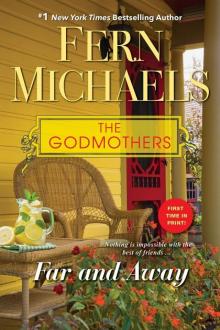 Far and Away
Far and Away The Christmas Stocking
The Christmas Stocking 18. Cross Roads
18. Cross Roads Texas Sunrise
Texas Sunrise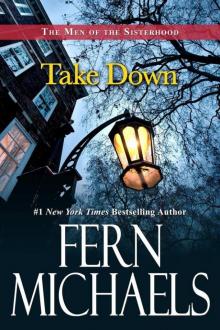 Take Down (The Men of the Sisterhood)
Take Down (The Men of the Sisterhood) Sleigh Bells
Sleigh Bells A Golden Tree
A Golden Tree About Face
About Face To Taste The Wine
To Taste The Wine Texas Rich
Texas Rich 15. Vanishing Act
15. Vanishing Act To Have and to Hold
To Have and to Hold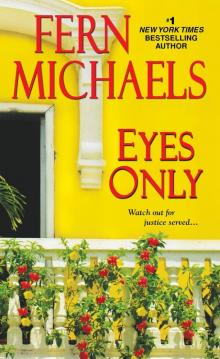 Eyes Only
Eyes Only Fearless
Fearless 5. Sweet Revenge
5. Sweet Revenge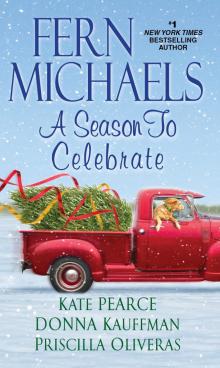 A Season to Celebrate
A Season to Celebrate Cut and Run
Cut and Run 8. Hide and Seek
8. Hide and Seek A Snowy Little Christmas
A Snowy Little Christmas Hidden
Hidden Sins of the Flesh
Sins of the Flesh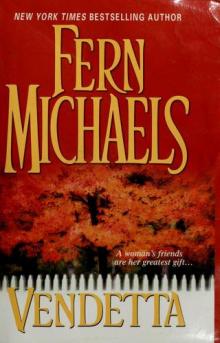 3. Vendetta
3. Vendetta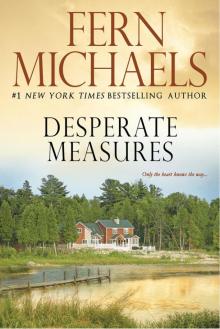 Desperate Measures
Desperate Measures No Way Out
No Way Out Late Edition
Late Edition 11. Collateral Damage
11. Collateral Damage Texas Heat
Texas Heat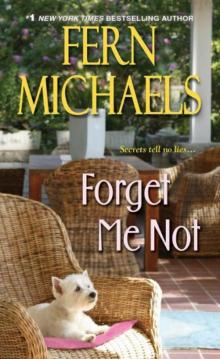 Forget Me Not
Forget Me Not 4. The Jury
4. The Jury 16. Deadly Deals
16. Deadly Deals Plain Jane
Plain Jane Crown Jewel
Crown Jewel Sweet Vengeance
Sweet Vengeance 19. Deja Vu
19. Deja Vu Point Blank
Point Blank Truth or Dare
Truth or Dare Family Blessings (Cisco Family)
Family Blessings (Cisco Family) Classified
Classified The Blossom Sisters
The Blossom Sisters Spirited Away
Spirited Away Wishes for Christmas
Wishes for Christmas What You Wish For
What You Wish For Fancy Dancer
Fancy Dancer 14. Razor Sharp
14. Razor Sharp I'll Be Home for Christmas
I'll Be Home for Christmas Vegas Sunrise
Vegas Sunrise Trading Places
Trading Places Charming Lily
Charming Lily Cross Roads
Cross Roads Balancing Act
Balancing Act Cinders to Satin
Cinders to Satin A Family Affair
A Family Affair A Winter Wonderland
A Winter Wonderland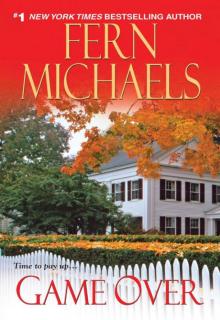 17. Game Over
17. Game Over Hokus Pokus (The Sisterhood: Rules of the Game, Book 2)
Hokus Pokus (The Sisterhood: Rules of the Game, Book 2) Picture Perfect
Picture Perfect Dear Emily
Dear Emily 9. Hokus Pokus
9. Hokus Pokus Cross Roads - Sisterhood book 18
Cross Roads - Sisterhood book 18 Blindsided
Blindsided Fast Track
Fast Track Hey, Good Looking
Hey, Good Looking Kentucky Heat
Kentucky Heat Yesterday
Yesterday Weekend Warriors
Weekend Warriors Coming Home for Christmas
Coming Home for Christmas Vanishing Act
Vanishing Act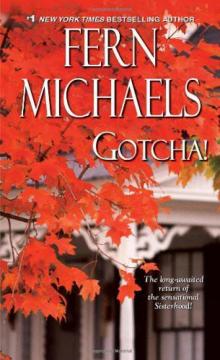 Gotcha!
Gotcha! Home Free
Home Free Fast Track (The Sisterhood: Rules of the Game, Book 3)
Fast Track (The Sisterhood: Rules of the Game, Book 3) Holly and Ivy
Holly and Ivy Fool Me Once
Fool Me Once The Most Wonderful Time
The Most Wonderful Time Exclusive
Exclusive Jingle All the Way
Jingle All the Way Vendetta
Vendetta Kentucky Rich
Kentucky Rich Lethal Justice
Lethal Justice The Future Scrolls
The Future Scrolls Deja Vu
Deja Vu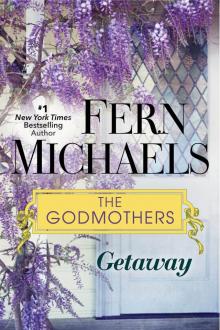 Getaway
Getaway Mistletoe Magic
Mistletoe Magic Seasons of Her Life
Seasons of Her Life When the Snow Falls
When the Snow Falls Breaking News
Breaking News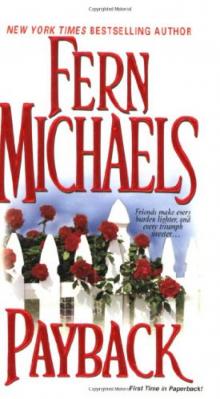 2. Payback
2. Payback Under the Radar
Under the Radar Serendipity
Serendipity High Stakes
High Stakes Need to Know
Need to Know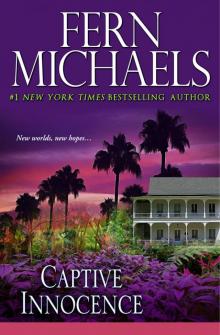 Captive Innocence
Captive Innocence Countdown
Countdown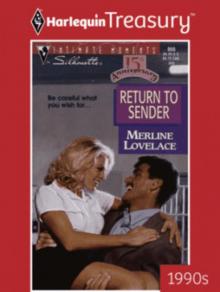 Return to Sender
Return to Sender Fast and Loose
Fast and Loose Sara's Song
Sara's Song Razor Sharp
Razor Sharp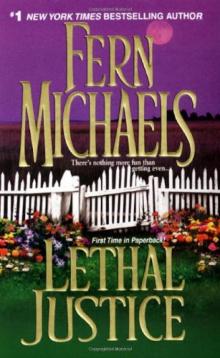 6. Lethal Justice
6. Lethal Justice Hokus Pokus
Hokus Pokus 13. Under the Radar
13. Under the Radar 7. Free Fall
7. Free Fall Collateral Damage
Collateral Damage Whitefire
Whitefire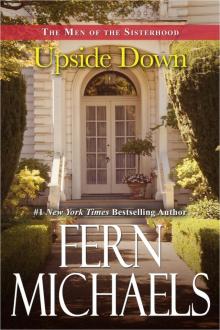 Upside Down
Upside Down Southern Comfort
Southern Comfort Celebration
Celebration 1. Weekend Warriors
1. Weekend Warriors 10. Fast Track
10. Fast Track Making Spirits Bright
Making Spirits Bright Silver Bells
Silver Bells Holiday Magic
Holiday Magic Christmas At Timberwoods
Christmas At Timberwoods Captive Embraces
Captive Embraces Winter Wishes
Winter Wishes Listen To Your Heart
Listen To Your Heart Kentucky Sunrise
Kentucky Sunrise Tuesday's Child
Tuesday's Child Final Justice
Final Justice Free Fall
Free Fall No Safe Secret
No Safe Secret Deadly Deals
Deadly Deals Wish List
Wish List Pretty Woman
Pretty Woman Payback
Payback Mr. And Miss Anonymous
Mr. And Miss Anonymous The Scoop
The Scoop In Plain Sight
In Plain Sight The Nosy Neighbor
The Nosy Neighbor Final Justice: Sisterhood Series #5
Final Justice: Sisterhood Series #5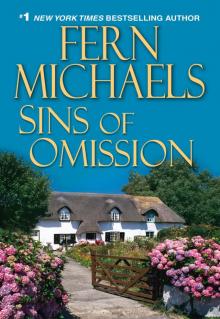 Sins of Omission
Sins of Omission The Jury
The Jury Captive Secrets
Captive Secrets Hide and Seek (The Sisterhood: Rules of the Game, Book 1)
Hide and Seek (The Sisterhood: Rules of the Game, Book 1) Crash And Burn
Crash And Burn Sweet Revenge
Sweet Revenge Secret Santa
Secret Santa 20. Home Free
20. Home Free Game Over
Game Over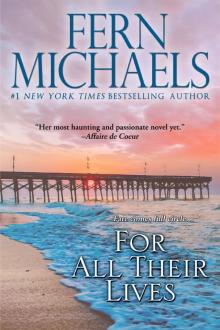 For All Their Lives
For All Their Lives 12. Final Justice
12. Final Justice Hideaway
Hideaway Perfect Match
Perfect Match